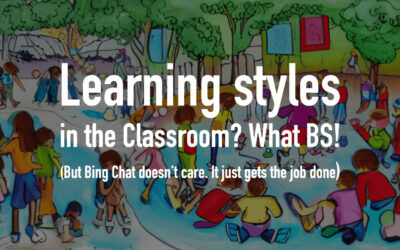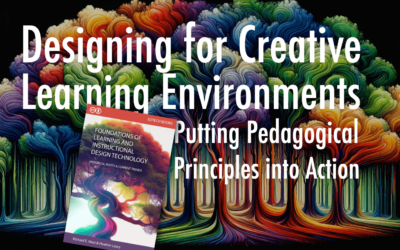Robin Revette Fowler sent me a message on Facebook regarding my recent posting(s) about moving from incompetence to mastery (see the two previous posts here and here). She took issue with my idea that mastery requires some kind of meta-level, self-awareness. She said
It seems like the issue is with either the meaning of “mastery” or perhaps with the types of skills you’re talking about.
Conscious/unconscious knowledge is especially interesting to me re: linguistics. Most native speakers have only unconscious competence of their language– I used to hear Writing Center tutors telling ESL students, “you need an ‘a’ here; I don’t know why” all the time. Many NNSs, on the other hand, have much stronger conscious competence– they often know “rules” about how to use determiners much better than Native English speakers, for example. At the same time, I’m not sure they would be said to have “mastery.”
And I don’t know that the conscious competence is the important thing here. Would you argue that only linguists who can describe their determiner choices have “mastery” of English grammar?
At first blush Robin seems to be making a good point. Do writers need to know how and why they do what they do they do as long as they get it right? There is a surface plausibility to the argument but I am not sure that it stands muster if we dig deeper.
I think we may need to distinguish mastery over grammar from mastery over language. One is not essential for the other. Second, native speakers who do not explain the rules of grammar they so effortlessly apply in their everyday speech are not necessarily masters of the domain either. Most people have a difficult time articulating precisely what it is that they want to say. This explains the need for remedial writing classes at schools and high schools.
For me mastery is about more than knowing the rules. It is about knowing when the rules apply and when they don’t. It is about being creative – and knowing when not to be. And to me this demands a “stepping out of the box” so to speak. Douglas Hofstadter had a special word for it “Joots” (which was an acronym for “Jumping Out Of The System”). So a master writer may not know the rules of grammar but will know (and will be able to explain) why in certain contexts one more is more appropriate than another. The reasons given will have to do the mood being established, the context within which the word appears, the character saying it, the nature of the sound etc. etc. Grammar may be one of the reasons but I can bet that a good author can and does have lots of nuanced thoughts about this – and can articulate them. Similar comments can be made about other artists – such as film makers and musicians as well. For instance see an earlier posting about A different language, where a musician describes his goal was to achieve a “mossy, woody, decaying kind of sound”
One of the best places to see this articulation is in the director’s commentary that comes with most DVD’s these days. I remember Sam Mendes talking about the kinds of compositional choices made for the movie American Beauty, whenever the Kevin Spacey character came on screen, particularly during the early scenes. The intention was to externalize his internal feelings of being “trapped” though this was never verbally articulated on screen. So the first scene shows Kevin Spacey staring out through the bars of window, and so on. The most interesting use of this effect was where they show his face reflected onto a computer screen. Mendes mentions how they deliberately designed the “stuff” on the screen to look like bars as well. Now can Mendes talk about the technicalities of film editing, how lighting can be managed, how the stedicams work. Sure he can. But the commentary is not about these technicalities (the “grammar” so to speak). The commentary is about the real stuff, the important stuff, how meaning is constructed through images, time, sound and rhythm. That is mastery.




Dan, to be fair to Robin, she had just shot off a quick note to me (via fb, as I said) so it is not surprising that she didn’t have the time to put forth a more definitive position. So my longer response may be a bit of overkill. That said, I did find her posting to be thought provoking.
I don’t think Robin ever actually established a reasoned and supported position to counter your position, Punya. Mastery is certainly different than getting it right. A monkey can get the right answer every now and then. An incompetent can get it right, occasionally.
This makes me think of Keats’ Negative Capability-“being in uncertainties, mysteries, doubts, without any irritable reaching after fact and reason.”